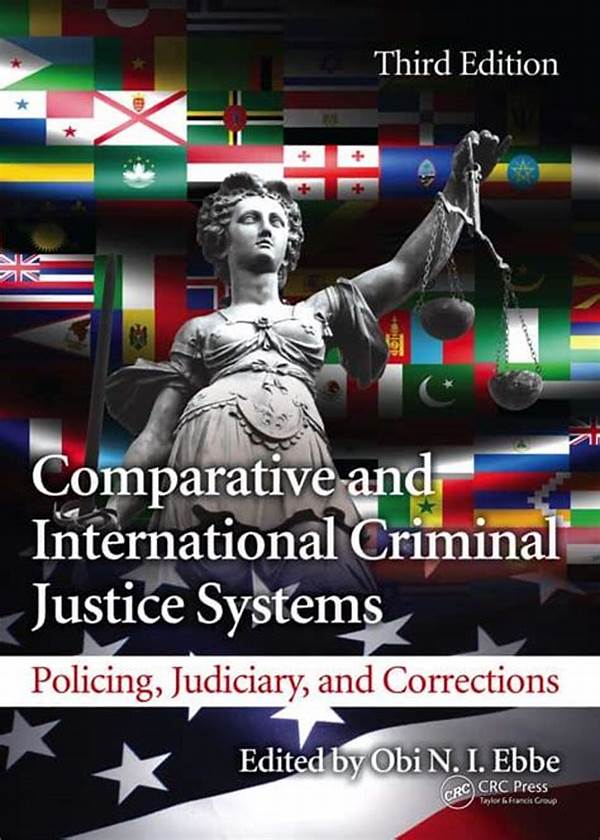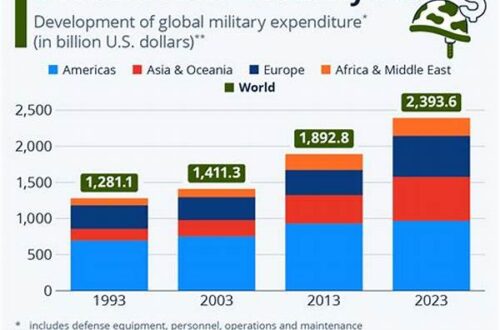Understanding International Criminal Justice Systems
International criminal justice systems represent a collective framework established to address crimes of significant concern to the global community, including genocide, war crimes, and crimes against humanity. These systems aim to maintain global peace and security by ensuring accountability through legal institutions such as the International Criminal Court (ICC) and ad hoc tribunals. The complexity of international criminal justice systems arises from the necessity to harmonize and coordinate between diverse legal traditions, political interests, and cultural contexts. It is imperative to understand that these systems are not merely punitive; they also focus on delivering justice to victims, reconciling communities, and deterring future crimes.
The existence of international criminal justice systems underscores the global commitment to upholding human rights and promoting the rule of law. By holding individuals and entities accountable for crimes of international concern, these systems serve as a deterrent while fostering a framework where justice transcends borders. Challenges persist, notably in gaining universal jurisdiction, securing state cooperation, and efficiently implementing judicial decisions. Nonetheless, international criminal justice systems are pivotal in championing the cause of justice on a worldwide scale.
Moreover, the development and adaptation of international criminal justice systems into national frameworks reflect an evolving global justice landscape. Nations are encouraged to adopt principles of international law, integrating them into domestic legal systems to ensure comprehensive coverage against international crimes. This integration acts as a bridge, connecting national jurisdictions to the greater goal of achieving justice and peace globally.
Key Components of International Criminal Justice Systems
1. Institutions: Central to international criminal justice systems are institutions like the ICC, tasked with prosecuting individuals for international crimes when national courts are unable or unwilling to do so.
2. Legal Frameworks: These systems operate under treaties and conventions, forming a legal basis to address transnational crimes and ensure international cooperation.
3. Jurisdiction: A critical aspect is establishing jurisdiction, which involves determining the scope and reach of authority these systems possess to try individuals for their alleged crimes.
4. State Cooperation: Effective functioning of international criminal justice systems depends on the cooperation of states, which must comply with investigations, arrests, and implementation of court orders.
5. Victim-Centric Approach: Emphasizing reparative justice, these systems focus on the victims, ensuring their rights are restored and needs addressed throughout the judicial process.
Challenges Facing International Criminal Justice Systems
International criminal justice systems continually face multifaceted challenges that impact their efficacy. Primary among these is achieving universal acceptance and enforcement of their rulings, as not all nations are parties to existing treaties like the Rome Statute, which governs the ICC. This non-universality results in limited jurisdictional reach and enforcement capabilities, with certain regions or countries remaining outside the purview of international criminal law. Consequently, perpetrators of grave crimes may find sanctuary in these jurisdictions, complicating arrest and prosecution efforts.
Another significant challenge is the political nature of international relations, where sovereignty concerns can hinder the cooperation required for investigating and prosecuting crimes. States may be reluctant to extradite individuals or share vital information due to diplomatic pressures or fears of political repercussions. Additionally, the complexity and costliness of conducting international trials pose logistical and financial obstacles. Despite these challenges, the perseverance and evolution of international criminal justice systems continue, as the global community seeks to enhance their efficacy through improved cooperation, legal innovation, and broadened support.
Evolution of International Criminal Justice Systems
International criminal justice systems have undergone considerable transformation since their inception, adapting to the dynamic nature of global conflicts and crimes. Initially, the post-World War II period saw the establishment of the Nuremberg and Tokyo Tribunals, setting foundational precedents for prosecuting war crimes. These early efforts paved the way for modern international legal frameworks, leading to the creation of permanent institutions, such as the ICC in 2002. The evolution reflects a growing international consensus on the necessity for legal mechanisms that extend beyond national boundaries.
The progressive integration of international criminal justice principles into national legislation across various countries represents another crucial development. By aligning domestic laws with international standards, states enhance their ability to address crimes of an international nature within their jurisdictions effectively. This evolution signifies a broader acceptance and commitment to international norms, fostering a more unified global approach to justice and accountability, despite the inherent challenges and shortcomings that persist in practice.
Future Prospects of International Criminal Justice Systems
Looking forward, international criminal justice systems are poised to expand their influence through continued reforms and adaptations. These advancements may include enhancing judicial processes, developing innovative legal instruments, and fostering greater international cooperation. Advancements in technology and digital forensics are also anticipated to play a significant role in improving the investigation and prosecution of international crimes. Consequently, the systems’ capacity to respond to the growing complexity of international criminal activities will be augmented.
Furthermore, sustained efforts to encourage more states to ratify international treaties will be vital in strengthening the reach and effectiveness of these systems. Broader participation will enable a more robust framework for international accountability, ensuring perpetrators, regardless of their location, can be held responsible for their actions. As international criminal justice systems evolve, their fundamental goal remains: the promotion of global peace through justice, accountability, and reconciliation.
The Role of Cooperation in International Criminal Justice Systems
Cooperation at various levels is indispensable for the efficacy of international criminal justice systems. States, international organizations, and non-governmental entities must collaboratively engage in facilitating investigations, extraditions, and sharing critical information. Such cooperation extends to supporting capacity-building initiatives, enhancing the capabilities of national legal systems to prosecute international crimes. This collaborative spirit underpins the essence of international criminal justice systems, which thrive on collective action for justice.
Additionally, this cooperation is not confined to the judicial sphere alone. Political, diplomatic, and civil society engagements play a pivotal role in advancing the goals of international criminal justice systems. By promoting awareness and advocacy, stakeholders can influence policy decisions, mobilize resources, and build a culture of accountability that transcends borders. Therefore, fostering cooperative relationships globally is not just beneficial but essential for the continued success and expansion of these systems.
Summary of International Criminal Justice Systems
In conclusion, international criminal justice systems are an indispensable component of the global effort to uphold justice and deter grave crimes. These systems provide a framework for prosecuting individuals and entities responsible for crimes that imperil international peace and security. Through mechanisms like the ICC and ad hoc tribunals, the systems work toward achieving justice beyond national confines, embodying global principles of accountability and human rights. Despite the diverse challenges they encounter, such as limited jurisdictional reach and political impediments, international criminal justice systems continue to evolve, aided by technological advancements and broadening international support.
The future of international criminal justice systems looks promising as ongoing reforms and increased cooperation among nations enhance their capacity to address complex international crimes. As more states integrate international legal standards into their domestic frameworks, a more cohesive global justice system emerges. The pursuit of justice, accountability, and reconciliation will remain at the forefront, ensuring that international criminal justice systems continue to play a vital role in promoting global peace and upholding the rule of law.





